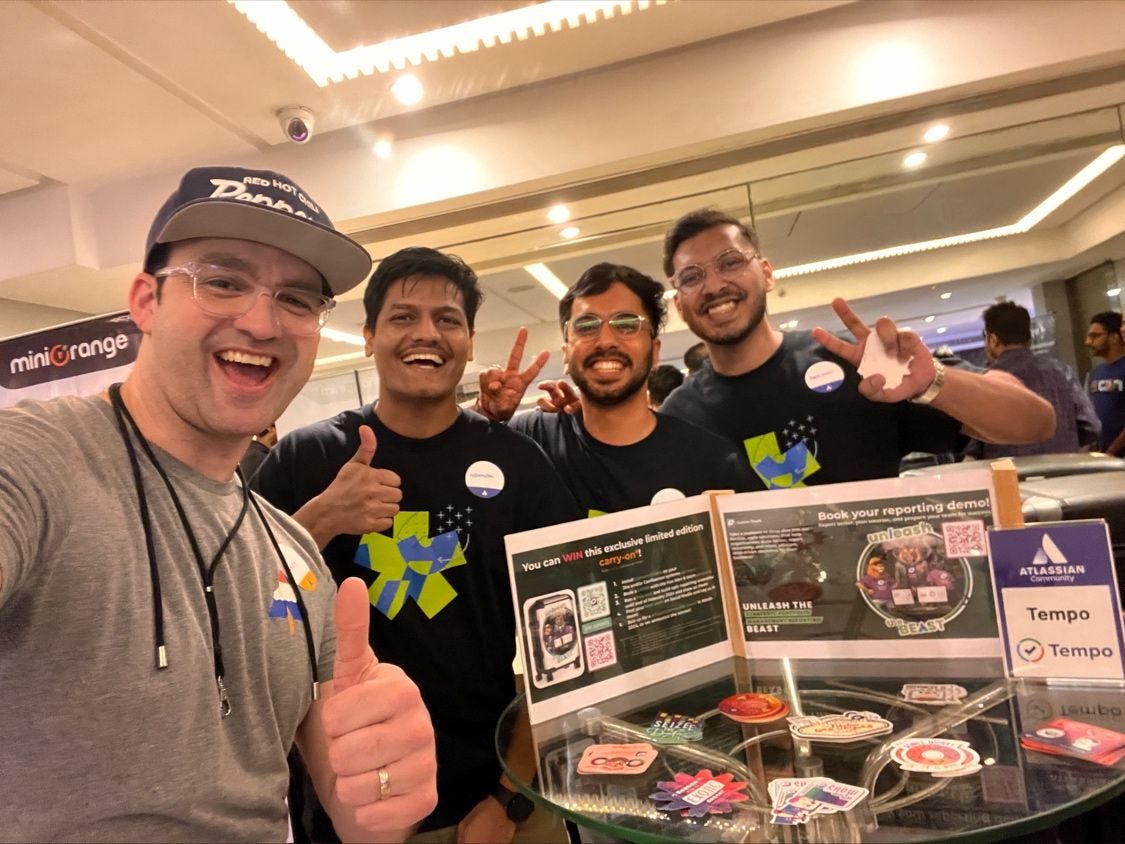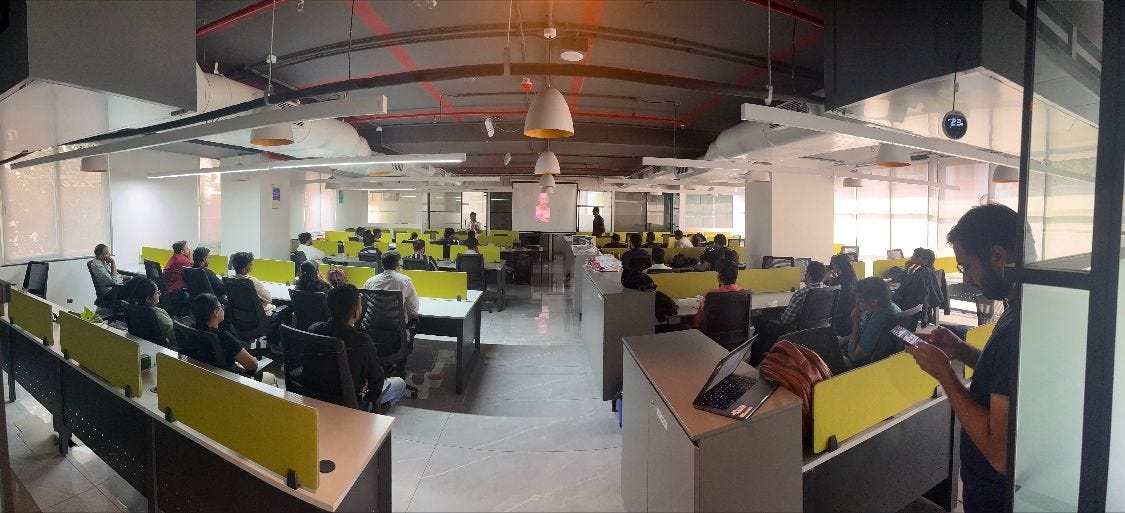Extra Events at Summits: Are They (The) Necessary (Evil)
The difference between "we want to" and "we are pressured to"
As we are the company built by the most recognizable event figure (CEO appreciation day! 🤭) in the Atlassian (but not limited to) space, this has to be one of our favorite blogs.
Building communities and driving conferences around these communities has always been an important milestone for big companies, both non-tech and technical alike. We see the accelerated evolution of summits and the desire for bigger, better, and louder event experiences. Event requirements and budgets are increasing, and participants and sponsors experience more challenges joining and preparing for them.
As we can see, it is getting increasingly popular for conference contributors to organize complimentary meetings and events for reasons like brand recognition, marketing, lead generation, or a friendly catch-up with partners and customers. But as they also become more expensive and complex, companies start asking themselves - and then ultimately Fun Inc - the question:
Is this even worth it, or are we doing it because it’s the expected and ‘necessary’ event experience?
The short answer is: If your side event is not aligned with your project goals or KPIs, it’s probably NOT worth it.
Success depends on understanding why the event is needed, aligning it with measurable outcomes, and ensuring it offers memorable experiences, and not doing it because you are expected to provide extra drinks on any given night.
What side events to consider when sponsoring a summit or a conference
Exclusive sessions or branded events in/around the conference area
These events are usually an extension of your sponsorship or collaborator package. It gives more visibility to your brand, and it makes connecting with new prospects easier, considering they are already there. Of course, it comes at a price, and it’s often an expensive one.
Networking lunches or dinners and afterparties
What is more tempting to a conference attendee than the opportunity for lunch, dinner, or a party? But is it the right choice for you?
As long as the first question has an obvious answer, hosting a party may drain your budget but leave you disappointed in the results. Andy has a very solid view on this one:
Battling for the best time and place for their side event, companies end up with unknowingly hosting competing parties at the same (or neighbouring) venue (garden terrace). The result? Divided guests, awkward encounters, and missed opportunities for collaboration.
Instead of competing for attention, pooling resources for a shared event can create something more significant, more impactful, and - most importantly - memorable for everyone.
Workshops and trainings
If a party needs at least 1-3 months to be correctly executed, a potential technical workshop needs even more. You have the time and resources? Creating a workshop for users interested in your products is a great way to engage with authentic leads and shorten their customer journey by allowing them to test and evaluate your product based on their most pressing technical needs.
Last year at a major expo, the founder of SoftComply, Dr. Marion Lepmets did just that. A Risk Management workshop that garnered the interest of 25 individuals, super eager to do some hands-on technical stuff with her apps. What’s even more impressive… the Keynote Interview was Ted Lasso and Coach Beard! This year she’ll be looking to do exactly the same, but doubly so, as a Collaborator of our own extra event, using that two days previous to promote the workshop.
When extra events add real value
The answer lies in the strategic opportunities these events present. Extra events, when executed with clarity, purpose, and clear goals, can:
Deepen Relationships: An informal environment often fosters deeper connections. Whether it’s dinner over drinks or a relaxed networking lounge, attendees are more open to conversations outside the structured confines of a summit.
Stand Out: It can be challenging to distinguish your brand in a crowded expo hall. An extra event tailored to your audience’s needs - an executive luncheon, a hands-on workshop, or a casual evening mixer - makes your presence unforgettable.
Drive Engagement: Many partners pay for sponsorships, slap their logos on materials, and walk away wondering why they didn’t see a return. Extra events allow for focused, high-value engagement with your target audience.
Create Memorable Experiences: People may forget a booth interaction, but they won’t forget a night that left an impression. Whether it’s a beautifully curated dinner or a dynamic panel discussion, the key is to ensure your event stands out—and stays with them.
The Key Takeaway?
Extra events aren’t inherently a “necessary evil.”
If planned with intention, they can be an opportunity to deliver something memorable. The question isn’t whether to host an extra event but why and how to do it effectively. Whether making a major splash or keeping it simple, success depends on aligning your event with clear objectives and a well-defined audience.
At Atlassian Team '25 Anaheim, we’ve chosen to focus on collaborative events that bring multiple partners together, share costs, and deliver unforgettable experiences. Maybe we still have a collaborator packages available for you?
The next #events post takes a very special route. We discuss the true ROI of events and when it’s realized, offering a perspective you may be surprised to read.





3 cheers to the alignment of objectives and engagement! Not only will it bring success, but the journey will be delightful. Brilliant article, thank you!